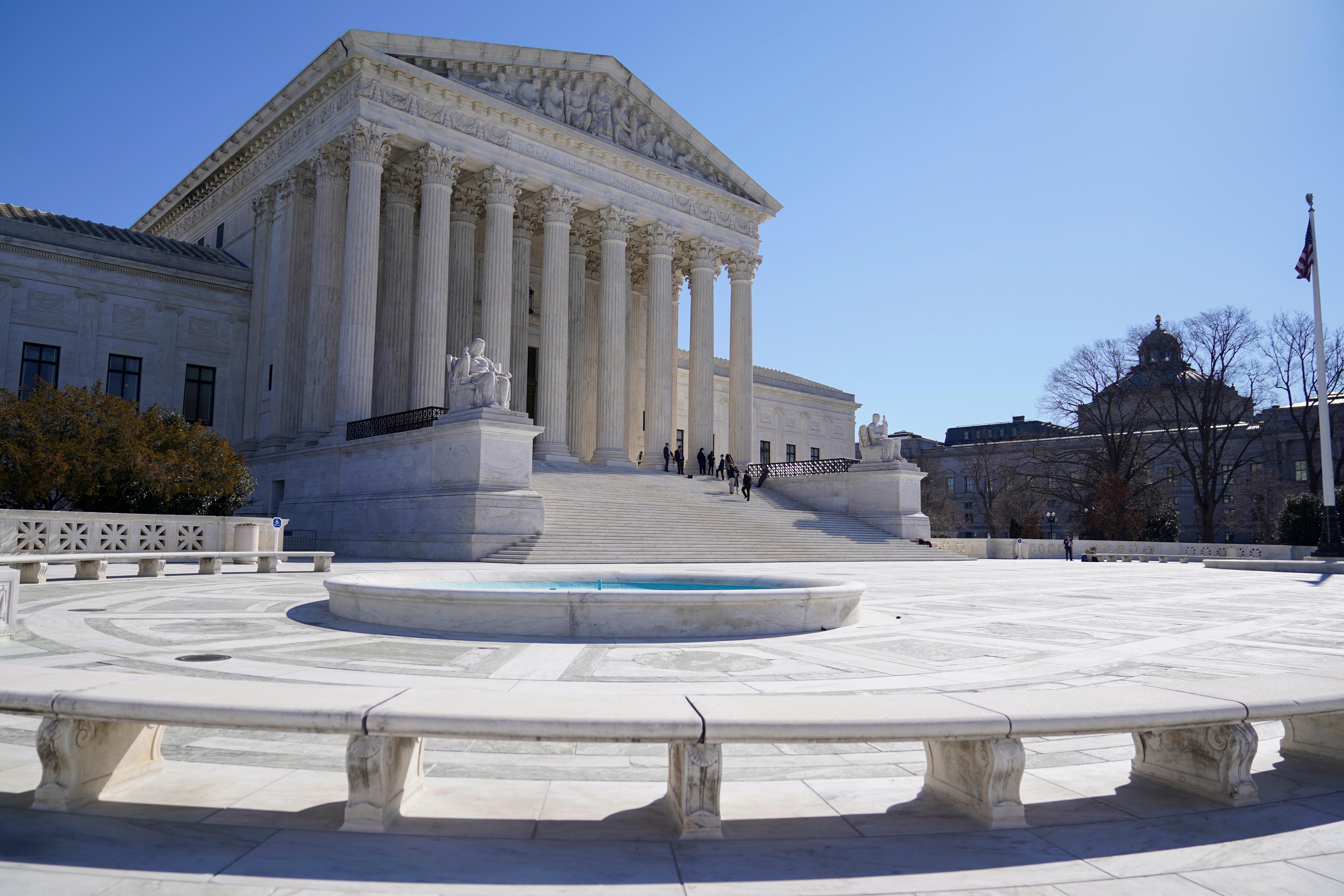High court wades into clash between Biden, Republican states
The Supreme Court is wading into a political clash between the Biden administration and Republican-led states seeking to defend a signature Trump-era immigration rule that the new administration has abandoned

Your support helps us to tell the story
From reproductive rights to climate change to Big Tech, The Independent is on the ground when the story is developing. Whether it's investigating the financials of Elon Musk's pro-Trump PAC or producing our latest documentary, 'The A Word', which shines a light on the American women fighting for reproductive rights, we know how important it is to parse out the facts from the messaging.
At such a critical moment in US history, we need reporters on the ground. Your donation allows us to keep sending journalists to speak to both sides of the story.
The Independent is trusted by Americans across the entire political spectrum. And unlike many other quality news outlets, we choose not to lock Americans out of our reporting and analysis with paywalls. We believe quality journalism should be available to everyone, paid for by those who can afford it.
Your support makes all the difference.The Supreme Court waded into a political clash Wednesday between the Biden administration and Republican-led states seeking to defend a signature Trump-era immigration rule that the new administration has abandoned.
Conservative and liberal Supreme Court justices acknowledged during arguments at the high court that when a new administration comes in, it can change policy. That's what the Biden administration did with the so-called public charge rule, which says green card applicants can’t be burdens to the country.
The question for the court is not the legality of the now defunct Trump-era rule, just whether a group of states led by Arizona should be able to pick up the legal fight over it.
Justice Elena Kagan suggested to Arizona Attorney General Mark Brnovich, arguing for the group of states, that allowing the group to intervene in a case “that’s completely dead that never applied to you in the first place” is not the answer. “Whoever the federal government is, there's always going to be a state that thinks it's done the wrong thing," she said. Other justices suggested a limited right to intervene might be possible.
Kagan, for her part, did question whether the Biden administration had erred by maneuvering to quickly jettison the Trump-era rule rather than going through a longer process. Justice Samuel Alito said the administration had devised a strategy to quickly set aside the rule and he wasn't “aware of a precedent where an incoming administration has done anything quite like this.”
Kagan and other justices suggested that if Arizona objected to the way the Biden administration ended the previous policy, however, it should have brought that issue to a court rather than attempting what Kagan described as a “quadruple bank shot" strategy to intervene in other cases.
Another issue for several of the justices: geography. Stephen Breyer, Clarence Thomas and Sonia Sotomayor were among the justices who questioned why Arizona belongs in a case that has its origins in California and Washington. “I've seen how Los Angeles has spread, but I don't think it's yet spread to Arizona,” said Breyer, who last month announced his plans to retire from the court.
At the center of the case before the justices is the so-called public charge rule. Former President Donald Trump's administration significantly expanded the rule, saying the use of public benefits including food stamps or Medicaid could be disqualifying. That led to court challenges, but the Supreme Court allowed the policy to take effect while those continued.
The Biden administration rescinded the rule and has since announced new guidelines. The administration says that in practice, in the year the rule was in effect, it only affected about five out of some approximately 50,000 applications it was applied to. The Biden administration and immigration groups have said the bigger impact of the rule was scaring immigrants, causing them to drop benefits or not enroll in them because of fears doing so could affect their applications to become legal permanent residents.
Despite the political nature of Wednesday's arguments, they did underscore one point of agreement between the Trump administration and the Biden administration. In the case of the public charge rule, a single federal judge in Illinois ruled to block the policy nationwide. The Trump administration had criticized similar nationwide injunctions by a single judge blocking a policy nationwide, calling them unlawful. Attorney Brian Fletcher, representing the Biden administration, said that view is shared by the new administration.
In addition to Arizona, the states involved in the case are Alabama, Arkansas, Indiana, Kansas, Louisiana, Mississippi, Missouri, Montana, Oklahoma, South Carolina, Texas and West Virginia.